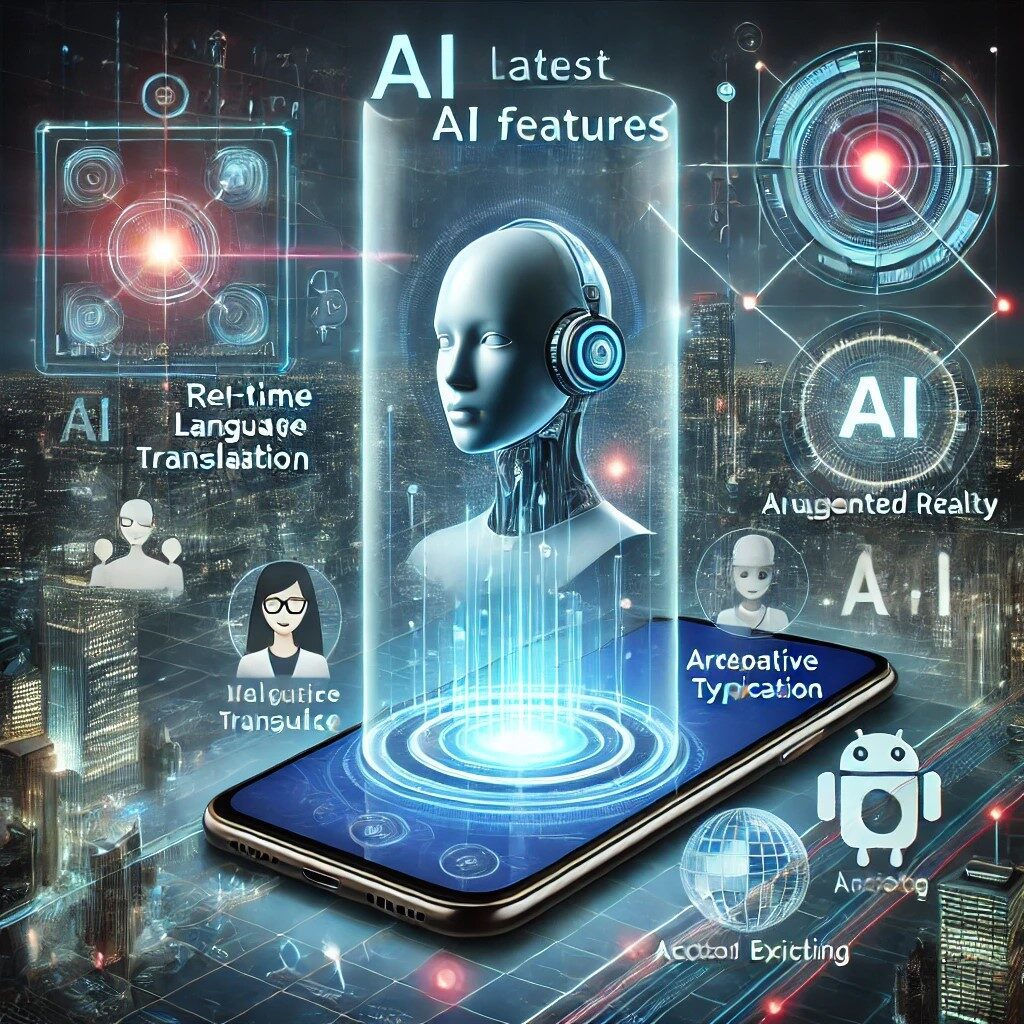Exploring the Latest AI Features in Mobile Tools
Panda Help VIP’s diverse library includes applications spanning multiple categories, from productivity tools to entertainment and beyond. The platform caters to a wide audience, ensuring that there is something for everyone. This diversity makes Panda Help VIP an ideal place for users seeking the latest in AI-driven applications, as it continually updates its offerings to include cutting-edge tools that harness AI to deliver superior performance and user satisfaction.



With AI technology continuing to evolve at a rapid pace, developers are constantly finding new ways to integrate AI into their applications. This trend is evident in the array of AI mobile tools available on Panda Help VIP, which utilize features such as natural language processing, machine learning, and computer vision. These technologies not only enhance the functionality of apps but also provide users with more intuitive and personalized interactions, significantly enriching the overall mobile experience.
Overview of AI Technology in Mobile Tools
One of the key aspects of AI technology in mobile applications is personalization. AI algorithms analyze user data and behavior to tailor the app experience to individual preferences. This might include personalized content recommendations, adaptive user interfaces, or customized notifications aimed at improving user engagement and retention. Personalization not only enhances user satisfaction but also increases the likelihood of continued app usage by delivering relevant and timely information.
Automation is another significant advantage that AI brings to mobile applications. By automating routine tasks, AI can free up users to focus on more important activities. For example, AI-powered calendar apps can automatically schedule meetings by checking for available time slots, while email apps can sort and prioritize messages. Such automation leads to increased productivity, allowing users to manage their time more efficiently and effectively without being bogged down by mundane tasks.
Moreover, AI has revolutionized user engagement by enabling apps to offer interactive and dynamic experiences. Natural language processing (NLP) allows apps to understand and respond to voice commands, facilitating hands-free interaction. This technology is commonly seen in virtual assistants like Siri and Google Assistant, which can perform tasks ranging from setting reminders to controlling smart home devices. By understanding user intent and context, these assistants provide seamless interactions that mimic human conversation.
The integration of AI in mobile app development also opens up new possibilities for innovation. Features like augmented reality (AR), powered by AI, are becoming more prevalent in gaming and shopping apps, where they offer immersive experiences that engage users in entirely new ways. Similarly, AI-driven analytics provide developers with valuable insights into user behavior and app performance, enabling continuous improvement and adaptation to user needs. These advancements not only push the boundaries of what mobile apps can achieve but also redefine the standards of usability and functionality within the industry.
Featured AI Mobile Tools
AI story generators are at the forefront of the creative use of AI technology in mobile applications. By employing deep learning algorithms and natural language processing (NLP), these tools can analyze themes, styles, and language patterns to produce engaging and lifelike narratives. Users simply input parameters such as characters, setting, or plot elements, and the AI weaves these components into a story, creating captivating and often unexpected outcomes.
One of the primary advantages of AI story generators is their ability to assist writers in overcoming creative blocks. By providing fresh perspectives and unique plot twists, these tools can inspire writers and help them explore new genres or styles of writing. This makes them invaluable not only to amateur storytellers looking to experiment with their creativity but also to seasoned writers seeking inspiration or new ways to enhance their narratives.
Moreover, AI story generators can be used for educational purposes. They can serve as a resource for language learning by helping students practice writing in a foreign language or learn new vocabulary and grammar structures. Teachers can use them to create interactive storytelling activities that engage students and improve their critical thinking and creative writing skills. By turning writing into an interactive and gamified experience, these tools make learning more enjoyable and effective.
Additionally, AI story generators emphasize the collaborative potential between humans and machines in the creative process. Users can iterate on AI-generated stories by refining plots, developing characters, or expanding dialogue, ultimately enhancing and personalizing the narrative. This collaboration not only improves the quality of the stories but also encourages creative innovation, demonstrating the potential of AI to amplify human creativity rather than replace it.
Future of AI Mobile Tools
As AI technology continues its rapid evolution, the future of AI mobile tools promises to bring even more sophisticated and versatile applications that cater to diverse user needs. One area of significant potential is the integration of AI with augmented reality (AR) and virtual reality (VR), which could create immersive storytelling and gaming experiences. These advanced interfaces could allow users to not only read or listen to stories generated by AI but also participate interactively in narrative worlds, making decisions that affect the storyline in real-time.
Furthermore, the development of more advanced natural language processing (NLP) models will likely enhance AI’s ability to understand and emulate human language intricacies, leading to AI story generators and other applications that can produce more nuanced and contextually rich content. These advancements could enable AI tools to generate content that is not only structurally coherent but also emotionally resonant, capturing subtleties of tone and style that better mimic human authorship.
In addition to creative applications, AI mobile tools are poised to have a significant impact on industries such as healthcare, finance, and education. For instance, AI-driven diagnostic apps for smartphones could provide users with preliminary assessments based on symptoms and medical history, offering a proactive approach to personal health. Similarly, AI applications could offer tailored financial advice or personalized learning plans, empowering users to make informed decisions and achieve their goals more effectively.
As these technologies evolve, accessibility and ethical considerations will also become increasingly important. Developers will need to focus on making AI tools available and inclusive for all users, ensuring that advancements do not widen the digital divide. Additionally, as AI becomes more integrated into daily life, issues such as data privacy, transparency, and algorithmic fairness will be central to discussions on how best to harness AI’s potential while safeguarding user trust and security. As these concerns are addressed, the benefits of AI in mobile applications will likely become even more pronounced, leading to transformative changes in how we interact with technology in everyday life.
Conclusion
In summary, AI mobile tools, particularly AI story generators, are at the forefront of redefining mobile app experiences. These tools are not only enhancing creativity and productivity but are also broadening the horizons of what users can achieve with mobile technology. Panda Help VIP remains a reliable destination for users eager to explore these cutting-edge applications.
Related Apps
Latest News
- Exploring the Latest AI Features in Mobile Tools
- Exploring the Intersection of AI and Creativity: From Art to Music
- Exploring the harmony of sounds in the Incredibox game
- Exploring the Grow Castle best heroes
- What is Napster: Exploring the revolution of music streaming
- Exploring The Profit Potential: Things To 3D Print And Sell In 2023







